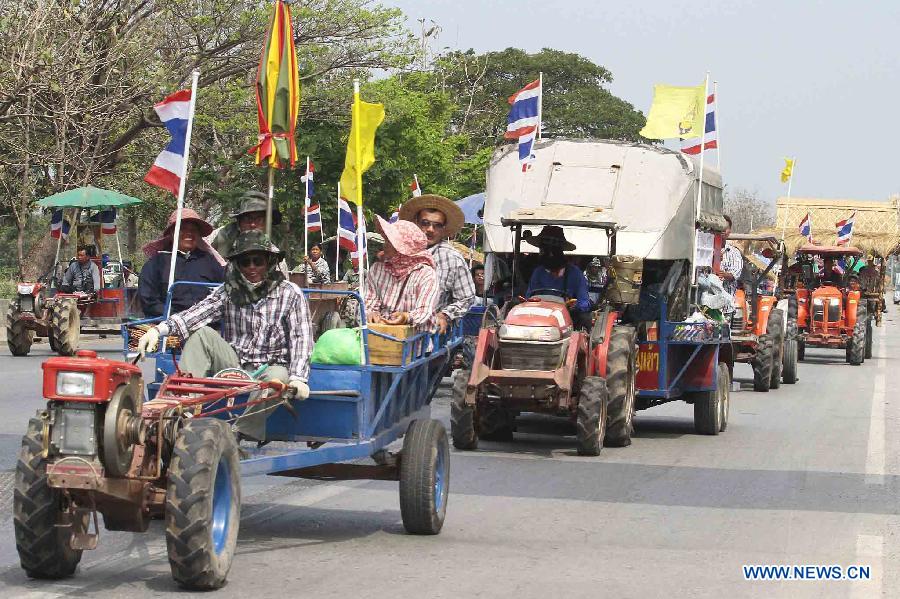Farmers vow protests if TPP gets nod
The Bangkok Post | 28 April 2016
Farmers vow protests if TPP gets nod
by APINYA WIPATAYOTIN & PHUSADEE ARUNMAS
Farmers nationwide have threatened to organise protests against the government if it decides Thailand should take part in the Trans-Pacific Partnership (TPP) agreement.
National Farmers Council (NFC) chairman, Prapat Panyachatrak, said Wednesday he was worried the farming sector will bear the brunt of the impact if the government decides to join, resulting in a collapse of small and medium-sized farm operators.
The NFC will submit a petition to the Agriculture and Cooperatives Ministry to oppose joining the TPP and to convey farmers’ concerns to the International Economic Policy Committee chaired by Prime Minister Prayut Chan-o-cha. The government says it is considering the deal.
"If the government does not avoid the TPP, we cannot avoid having a confrontation as well. All farmers nationwide are ready to move to protect their own interests," he told a seminar on the TPP’s impact organised by the National Farmers Council.
He added the TPP might have a positive impact on certain sectors, but huge negative impacts would follow for the farming sector, biodiversity, food security, and the country’s sovereignty, adding the government should exercise extreme caution in considering the matter.
Sitthiporn Boorananath, secretary to the Beef Cattle Association of Thailand, said local livestock farmers would have limited means to adjust to the agreement.
Many of them would go out of business as they would be unable to compete with an influx of cheaper overseas products under the free trade agreement.
The FTA between Thailand and Australia, completed in 2005, provides an example of the potential adverse impacts, as it resulted in a drastic reduction in the number of local cattle from nine million to five million currently, he said.
Withoon Lianchamroon, director of Biothai, said the TPP would force the country to join the International Convention for the Protection of New Varieties of Plants, and the Budapest Treaty on the International Recognition of the Deposit of Microorganisms for the Purposes of Patent Procedure.
They provide exclusive protections to foreign enterprises in relation to any biodiversity discoveries, preventing Thailand from sharing in the benefits. It is estimated the country could lose 49 billion baht per year in biodiversity loss to the biotech industry.
He added the TPP fully supports genetically modified (GM) crops, in addition to measures limiting compensation for producers of GM products in any country that has been affected by GM contamination in their local environments.
The Commerce Ministry will hold a series of meetings with farmers and civic groups to discuss the pros and cons of the TPP on their sectors and their concerns should Thailand sign up for the deal.
Commerce Minister Apiradi Tantraporn said the meeting would focus on the potential impacts of the TPP on each of the sectors concerned. The first group which will hold discussions will be livestock farmers, she said.
The Commerce Ministry has been trying to increase understanding on TPP issues among stakeholders including farmers in various sectors, health activists, and consumer protection groups.
Talks are still necessary to increase awareness, she said. She did not comment on the level of public support for Thailand joining the deal.
After discussions with the various sectors, the minister will submit a conclusion to the government’s International Economic Policy Committee in early June for a decision on whether to join the pact.
"Regardless of whether Thailand joins the TPP, our trade and economic sectors need reform," she said.






